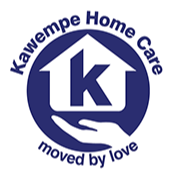KHC believe that the most disadvantaged people in our community deserve access to medical care and support.
Our services provide a holistic approach to assist our clients. Our medical programs provide:
Counselling & Testing – We actively work through our community network to identify people who are chronically ill or, at risk such as pregnant mothers. We encourage them to come to us for testing. Our 3 counsellors provide: HIV pre and post test counselling; sensitization and health education for clients at the clinic and in the community; as well as bereavement support.
Clinical Services – Provide medical consultation; pain and symptom management for cancer patients; HIV/TB integrated care; adolescent care; and the prevention of HIV spreading to unborn children. Screening for Tuberculosis and early intervention has enabled us to keep the mortality of our patients very low.
We have 2 outpatient clinics however Home Based Care is an important support service for patients who are severely ill and cannot come to the clinic. Our teams provide palliative care, nursing care, nutrition and hygiene support.
Important components of our care are: cervical screening which is conducted daily; breast cancer screening which is conducted every Friday; and weekly STI screening; community outreach visits; Family Planning support; and immunization services are conducted on Thursday for the outreach clinic and Friday at the facility.
Palliative Care – can improve a patient’s quality of life through prevention of suffering by means of early identification, relief and treatment of pain, as well as addressing any social and psychosocial problems. The approach is multidisciplinary and includes the patient; the clinical team; the family; the community volunteers; and the community as well.
A palliative care documentary was developed in October 2014 at KHC by NTV Uganda. It showed the home based palliative care services that we provide to our clients. Please take a moment and view the you tube video and see the work that we do in this area.
Our Elimination of Mother to Child Transmission program is very important and we have seen an increase in the number of pregnant women coming to us for testing. We work in collaboration with Kawempe Hospital, Komamboga Health Centre and Kasangati Health Centre where we refer our HIV mothers for the birth of their children.
We are pleased that on our program 100% of babies delivered are born HIV negative. Our 90 90 90 strategy where mothers are followed up during pregnancy and after delivery is to ensure the new born baby remains negative.
New Hope Children’s Hostel – the hostel provides care for children with cancer as they undergo treatment. This support provides increase access to specialised paediatriconcology care at the Uganda Cancer Institute for 300 vulnerable children. The hostel accommodates 30 children and their caregivers at a time and they are provided with a bed, 3 hot meals a day, transport for the children to the hospital for treatment, nursing care, psychotherapy, play and music therapy and legal aid support for parents and guardians.
Laboratory – At our laboratory we conduct 70% of the investigations, with the more sophisticated tests being conducted by the National Health Laboratory and Kampala Capital City Authority (KCCA) facilities which are supported by the Government.
Pharmacy – KHC provides drugs free to HIV/AIDS, TB and cancer patients and as there is an increasing demand for these drugs it is one of the challenges facing us.
To find out in more detail about our key programs, view our brochures:
Patient Support & Palliative Care: Tuberculosis (TB): HIV/AIDS.
